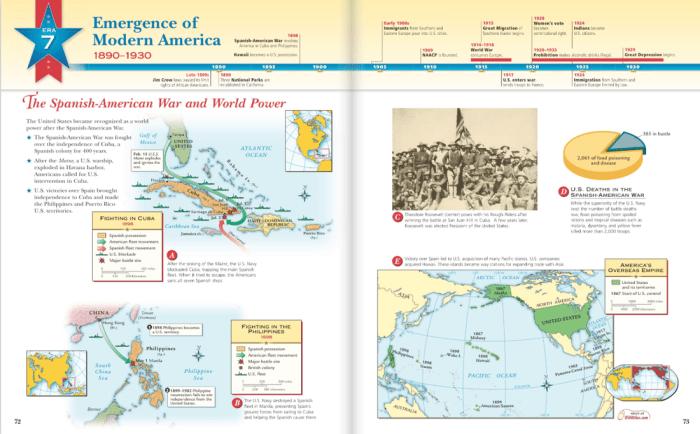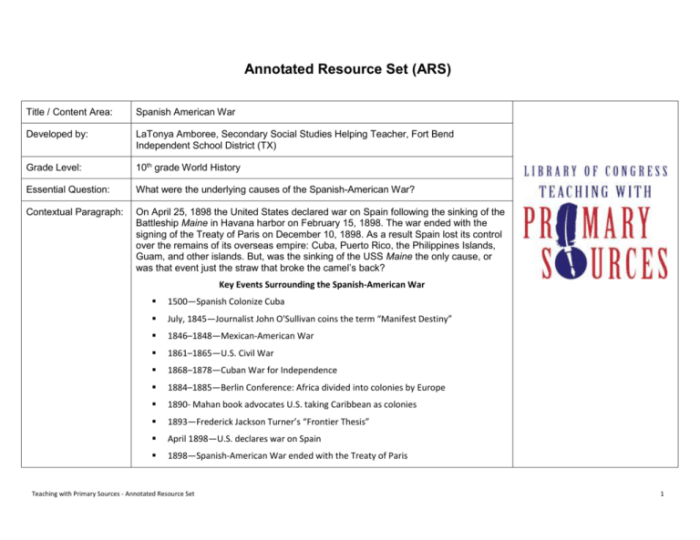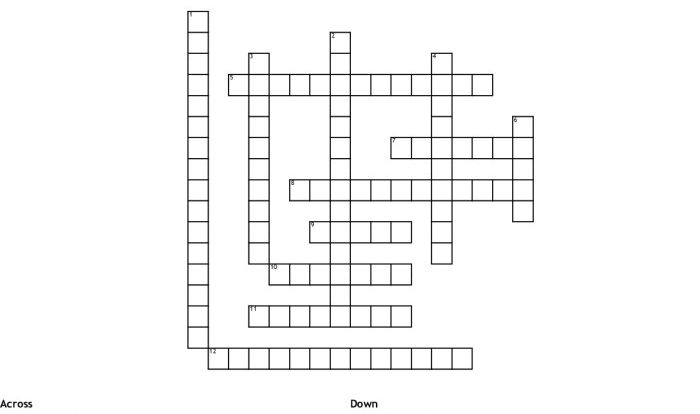The spanish-american war and world power 38a answer key – The Spanish-American War and World Power: 38A Answer Key delves into the pivotal conflict that propelled the United States onto the global stage. This comprehensive guide explores the political, economic, and societal factors that shaped the war, its profound impact on the United States’ role in world affairs, and its enduring legacy on American imperialism and society.
Through a captivating narrative, this guide unravels the complexities of the Spanish-American War, offering a nuanced understanding of its causes, consequences, and significance. Prepare to embark on an enlightening journey that sheds light on a transformative chapter in American history.
The Spanish-American War and the Emergence of the United States as a World Power

The Spanish-American War was a conflict between the United States and Spain that lasted from 1898 to 1899. The war was the culmination of decades of tension between the two countries, and it resulted in the United States emerging as a world power.
The political and economic factors that led to the war included the United States’ desire to expand its empire, the Cuban Revolution, and the sinking of the USS Maine. The war had a significant impact on the United States’ role in world affairs, as it led to the United States acquiring new territories, including Puerto Rico, Guam, and the Philippines.
The war also had a significant impact on the Spanish Empire, as it led to the loss of Cuba, Puerto Rico, and the Philippines. The war marked the end of the Spanish Empire as a global power.
The Spanish-American War and the Rise of American Imperialism, The spanish-american war and world power 38a answer key
After the Spanish-American War, the United States expanded its empire in a number of ways. The United States annexed Hawaii, Puerto Rico, and Guam, and it established a protectorate over Cuba. The United States also acquired the Philippines from Spain in the Treaty of Paris.
The motivations for American imperialism included the desire to expand the United States’ economy, the desire to spread American values, and the desire to protect the United States from foreign threats.
The consequences of American imperialism for the United States and the world were mixed. On the one hand, American imperialism led to the United States becoming a global power. On the other hand, American imperialism also led to the United States becoming involved in a number of wars, including the Vietnam War.
The Spanish-American War and the Transformation of American Society
The Spanish-American War had a significant impact on American culture and society. The war led to a surge of American nationalism, and it helped to create a new sense of American identity.
The war also contributed to the rise of the United States as a global power. The war showed that the United States was capable of defeating a major European power, and it helped to establish the United States as a major player in world affairs.
FAQ Corner: The Spanish-american War And World Power 38a Answer Key
What were the primary causes of the Spanish-American War?
The war was sparked by a complex interplay of political and economic factors, including the Cuban independence movement, American economic interests in Cuba, and the perceived weakness of the Spanish Empire.
How did the Spanish-American War transform the United States’ role in world affairs?
The war propelled the United States onto the global stage, marking the beginning of its era as a world power. The acquisition of territories such as Puerto Rico and the Philippines expanded American influence and brought the nation into direct contact with global conflicts.
What were the consequences of American imperialism following the Spanish-American War?
American imperialism had both positive and negative consequences. On one hand, it led to economic expansion and the spread of American values. On the other hand, it also resulted in the suppression of indigenous populations and the creation of new colonial dependencies.


